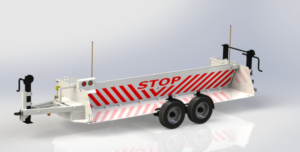A clean office that is pest-free is more critical than most people realize. A clean office minimizes employee health issues, reduces pest infestations, boosts morale, and improves productivity.
Unfortunately, keeping your office clean is easier said than done. You have to put forth the energy to make it happen. The following are three tips that may help you keep your business spotless easily.
Use Building Materials That Are Low Maintenance
An ounce of prevention is worth a pound of cure. When applied to office cleaning, it means using building materials that are low maintenance and easy to clean.
Manufacturers and contractors recognize the importance of easy-to-clean building materials and introduce products that do not need maintenance or cleaning. For example, stainless steel appliances with a dark or black matte finish are a great way to avoid smudges and fingerprints.
Low maintenance flooring options, including laminates that mimic tile or wood, are growing in popularity because they are inexpensive and easy to keep clean.
In warmer places, like Fort Worth, Texas, more office spaces are being built using concrete. Polished concrete floors, countertops, and desks are strong, attractive, and require minimal cleaning or maintenance.
Concrete exteriors and sidewalks can be pressure washed. The same is true of buildings made with brick. A simple call to a masonry repair Fort Worth TX professional is all it takes to get the building looking new if there are minor issues.
Set a Cleaning Routine
Even the easiest to clean building materials still need to be cleaned regularly. This is why, if you want to keep your workspace clean, you must create a cleaning routine that your employees can follow. Your employees should be in the habit of cleaning things regularly. This is the only way to keep your office looking and feeling its best.
You should separate cleaning tasks by day, week, and month. This is the only way to ensure that you don’t get behind with the cleaning and allow excess dust and grime to build up.
Daily cleaning tasks could include emptying the trash, keeping monitors and keyboards clean, wiping down tables, and cleaning up the countertops and break areas. Weekly tasks include assigning employees to clean out the break room refrigerator and wiping off appliances in the break room.
More in-depth cleaning may require hiring a professional cleaning service. However, it would be best if you did not leave all of the cleaning to the janitors. Employees should be responsible for cleaning their immediate area. If they are responsible for cleaning up after themselves, they will be more careful when doing their work and will be less likely to make bigger messes.
Don’t Overlook the Small Things
It is easy to notice when there are big messes that need to be cleaned. For example, if the office floor is full of grime, everyone is going to see it. You will know when the carpet needs to be vacuumed, or the floors need to be swept and mopped.
However, if you ignore the nooks and crannies, these might get overlooked. These areas tend to collect dirt, dust, and food crumbs. Ensure that desks and furniture are moved regularly to clean up any debris, dirt, or cobwebs accumulated in these areas.
This is especially important when doing a deeper cleaning in the kitchen or the break room. Food that falls into hidden spots makes the perfect meal for roaches, mice, rats, and other critters.
Common areas should be prioritized when it comes to office cleaning. Pay special attention to areas that employees frequent. This includes bathrooms, break rooms, and employee lounges.
Storage spaces and closets with a lot of clutter should be kept in check, so your office is clean and free from rodents and vermin. Cardboard boxes that are placed directly on the floor can attract mice. Rodents use cardboard to build a nest and will happily make themselves at home in your storage area if you let them. It is recommended that you use plastic boxes when you store items in your workplace.
Conclusion
Use the tips mentioned above when cleaning your office. They can help you keep your office clean, help your employees feel more comfortable, and prevent insects and rodents from invading your workspace.


